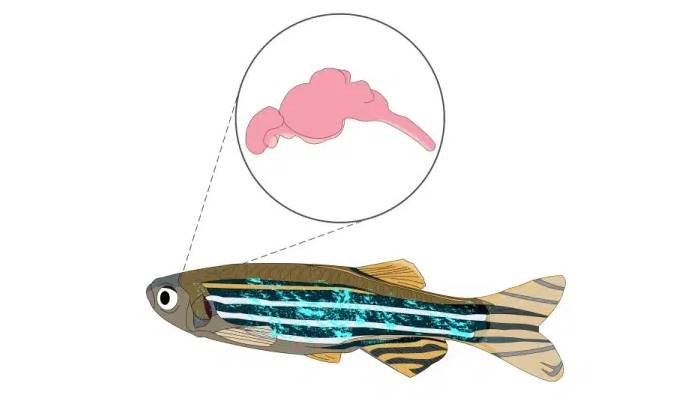With their distinctive brain structure, fish indeed possess brains that handle various functions such as sensory perception and motor skills. You may be surprised to learn that different fish species display varying levels of intelligence, with some capable of problem-solving and complex behaviors. In this blog post, we’ll examine into the fascinating world of fish intelligence, exploring their communication skills, tool use, memory capabilities, cultural learning, and how environmental factors impact their cognitive development. Let’s uncover the true extent of fish intelligence together!
Key Takeaways:
- Fish have brains: Fish do have brains, though their structure differs from mammals.
- Varied intelligence: Intelligence in fish varies across species, with some showing problem-solving abilities.
- Complex behaviors: Certain fish species exhibit complex behaviors, learning capabilities, and memory retention.
- Emotional responses: Research suggests that fish have the ability to feel pain and exhibit emotional responses.
- Underestimated intelligence: Fish intelligence is often underestimated due to misconceptions about their cognitive abilities.
Fish Brain Structure
Fish do have brains. However, their brain structure differs from mammals. In fish, the brain is divided into various regions, each responsible for different functions such as sensory perception and motor skills.
Regions and Functions
Brain regions in fish play vital roles in their day-to-day activities. These regions help fish process information about their surroundings, react to stimuli, and navigate their environment. For example, some regions are dedicated to processing sensory information like sight and smell, while others control movement and coordination.
Varied Intelligence across Species
The intelligence level in fish varies across different species. Some fish demonstrate problem-solving abilities, exhibit complex behaviors, and show signs of memory retention and associative learning. Studies have observed certain fish species navigating mazes, recognizing individuals, and engaging in social behaviors.
Another interesting aspect of fish intelligence is the influence of environmental factors and social interactions on their cognitive abilities. Research suggests that fish have the capacity to experience pain, exhibit emotional responses, and even learn from their surroundings.

Cognitive Abilities of Fish
Even though fish may not have brains that are similar to mammals, they do possess cognitive abilities that are crucial for survival in their underwater environment.
Problem-Solving Skills
With various regions in their brains dedicated to sensory perception and motor skills, some fish species demonstrate impressive problem-solving skills. Studies have shown that certain fish can navigate mazes, recognize individuals, and exhibit social behaviors, showcasing their intelligence in adapting to different challenges.
Learning and Memory
The ability of fish to learn and retain information is a fascinating aspect of their cognitive capabilities.
The studies show that some fish species exhibit complex behaviors, learning capabilities, and memory retention beyond simple associative learning tasks. Their intelligence can be influenced by environmental factors and social interactions, highlighting the importance of a stimulating environment for their cognitive development.
Memory retention in fish goes beyond basic associative learning, suggesting that they have the capacity to recall information over an extended period of time and apply it to various situations. This indicates a level of cognitive sophistication that is often underestimated in fish species.
Factors Influencing Fish Intelligence
Environmental Influence
Intelligence in fish is greatly influenced by their environment. Research has shown that environmental factors such as habitat quality and enrichment can have a significant impact on cognitive development in fish. By providing stimulating environments with opportunities for exploration and problem-solving, fish are more likely to exhibit advanced cognitive abilities. Recognizing the importance of environmental enrichment in fish habitats is crucial in supporting their cognitive development.
Social Interactions
To further understand fish intelligence, it is imperative to consider the role of social interactions. Studies have shown that social interactions can impact the cognitive abilities of fish. By observing and interacting with other individuals, fish can learn from one another, develop social behaviors, and enhance their problem-solving skills. Plus, social interactions also play a role in shaping the emotional responses of fish, highlighting the interconnected nature of intelligence and social behavior in aquatic species.
Future of Fish Intelligence Research
The world of fish intelligence research is wide open, with endless possibilities for exploration and discovery. As you explore deeper into this fascinating field, you’ll find that there is still so much to learn about these underwater creatures and their cognitive abilities.
Researchers have found that fish brains are structured differently from mammals, yet they exhibit complex behaviors like problem-solving, social interactions, and memory retention. Studies have shown that certain fish species can navigate mazes, recognize individuals, and exhibit emotional responses, indicating a level of intelligence that may surprise you.
As you ponder the future of fish intelligence research, consider delving into topics like communication skills among fish species, instances of tool use as a sign of advanced intelligence, the extent of long-term memory beyond simple learning tasks, and the potential for cultural transmission of knowledge and behaviors among fish populations. These areas hold the key to unlocking even more secrets about the cognitive capacities of fish.
Remember that environmental factors play a crucial role in fish intelligence and behavior, so exploring how environmental enrichment and habitat quality can affect cognitive development will be crucial in future research. By continuing to study fish intelligence with an open mind and a curious spirit, you can help debunk misconceptions and further our understanding of these fascinating aquatic creatures.
FAQ
Q: Do fish have brains?
A: Yes, fish have brains that differ in structure from mammals.
Q: How intelligent are fish?
A: Intelligence in fish varies across species, with some demonstrating problem-solving abilities and complex behaviors.
Q: Can fish learn and remember things?
A: Yes, some fish species show signs of memory retention and associative learning.
Q: Do fish feel pain?
A: Research suggests that fish have the ability to feel pain and exhibit emotional responses.
Q: Why is fish intelligence often underestimated?
A: Fish intelligence is often underestimated due to misconceptions about their cognitive abilities, highlighting the need for continued research to further understand their cognitive capacities.

















